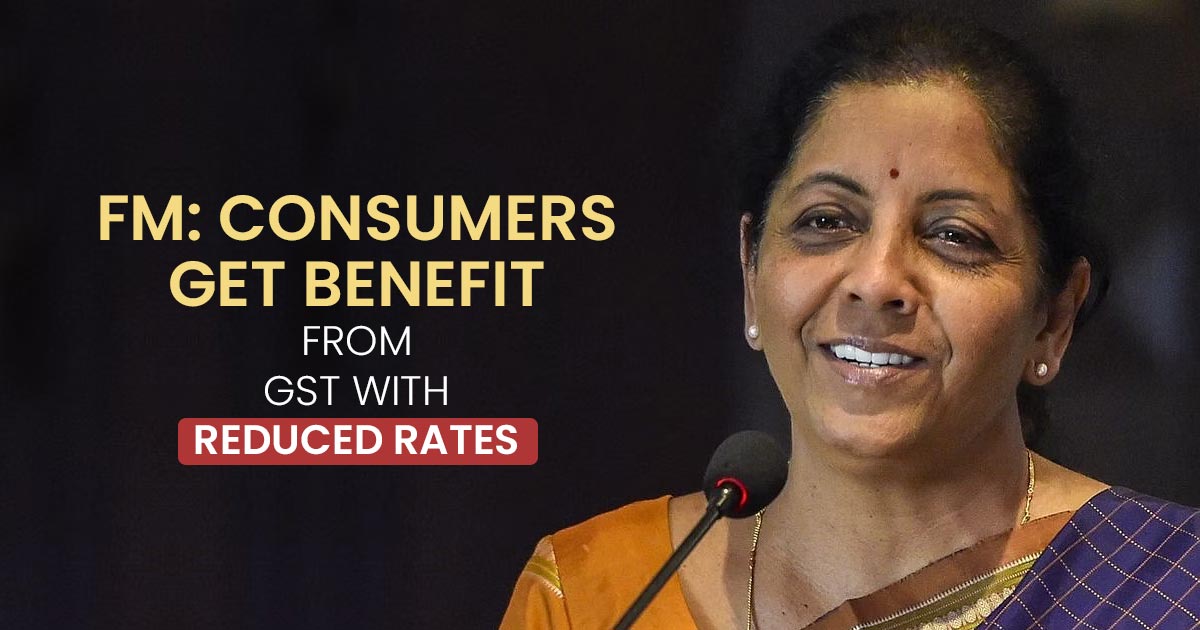
The GST would have given justice to the customers by reducing the rates corresponding with the former government, Union Finance Minister Nirmala Sitharaman mentioned. The GST would have surged the tax buoyancy for both states and the central government she added. By lowering the rates relative to the prior system, the GST has done the customers justice. Before the introduction of the GST, the indirect tax system in India was disjointed, with each state functioning as a separate market for both the industry and the consumer.
The GST has increased tax buoyancy, and as a result, your tax collection is increasing higher than your GSDP. Hence, both the central government and the states profit. The idea that states are losing out as a result of collaborating on the GST must be disproved. According to Union Finance Minister Nirmala Sitharaman, despite COVID, no state is now suffering as a result of the GST. The Union Finance Minister called the statement disgraceful and said that the GST has actually offered relief to the common people, in a thinly veiled jab at Rahul Gandhi for calling the GST the “Gabbar Singh” tax and asserting that it has raised the burden.
The average pre-GST tax rate for hair oil, toothpaste, soaps, fragrances, and detergents was close to 28%; under the GST, this rate was reduced to 18%. These are actual figures. So, if someone were to claim that the GST has imposed a burden—I won’t use the entire phrase—it is true that it is being referred to as the “Gabbar Singh” tax, which is unfortunate since this nation ought to be aware of it. According to the Union Finance Minister, a measure like GST genuinely helped the average citizen. For the benefit of the populace, several goods and services with widespread use have been exempted from the GST, according to Nirmala Sitharaman.
Food commodities that are not marketed packed and branded, such as rice, wheat, flour, curd, etc., have all been completely exempted from GST. According to Nirmala Sitharaman, services including those in healthcare and education, public transport, and agriculture are also excluded from the GST. The Ministry of Finance announced on Saturday that India’s gross goods and services tax (GST) revenue for the month of June was Rs 1,61,497 crore, a 12% increase over the revenue for the same month last year.
“The gross GST revenue collected in June 2023 is Rs 1,61,497 crore of which CGST is Rs 31,013 crore, SGST is Rs 38,292 crore, IGST is Rs 80,292 crore (including Rs 39,035 crore collected on import of goods) and cess is Rs 11,900 crore (including Rs 1,028 crore collected on import of goods). The government has settled Rs 36,224 crore to CGST and Rs 30,269 crore to SGST from IGST. The total revenue of Centre and the States in the month of June 2023 after the regular settlement is Rs 67,237 crore for CGST and Rs 68,561 crore for the SGST,” the Finance Ministry stated. For the 4th time, the gross GST collection would have reached Rs 1.60 lakh cr.










Please remove income tax also as Govt does not provide basic free education, Health and infrastructure.
Private school charges high fees, Medical very costly and govt has no control on it and Infra by collecting toll .
Then why Govt need both direct and indirect taxes ?